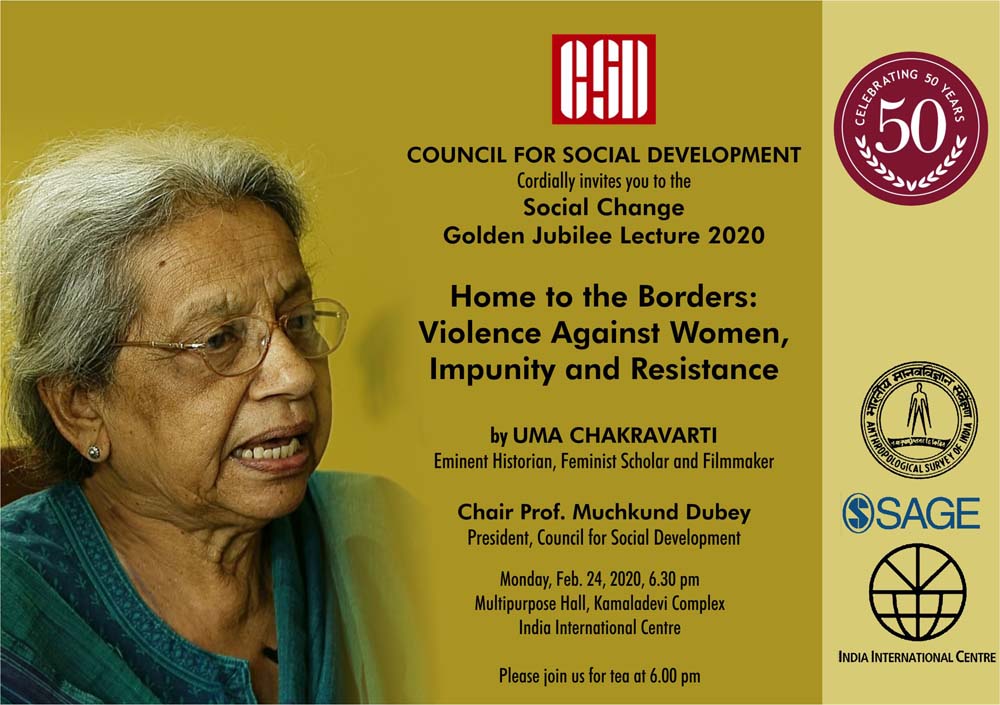Speaker: Prof Martin Fuchs, University of Erfurt, Germany and German Co-Director, ICAS: MP
Chair: Professor K B Saxena, Distinguished Professor, CSD New Delhi
Date: February 13, 2020 (Thursday)
Time: 3.00-4.30 PM
Venue: Durgabai Deshmukh Memorial Lecture Hall, CSD, Sangha Rachna, 53 Lodi Estate, New Delhi 110003
About the Talk: Social Justice as understood by Babasaheb Dr. Bhimrao Ambedkar can be taken as a shorthand for a whole bundle of values and norms which a decent society is meant to provide and which is required for each of its members to be able to lead a dignified life. While Ambedkar put strong emphasis on the chance for each individual to develop his or her capabilities, equality and justice for him had to be grounded on mutual respect, social recognition and compassion, or what he, with others, called fellow-feeling.
Ambedkar’s attempt to achieve this in the case of his own society through political struggle and by legal means – culminating in his work on the Indian Constitution – was accompanied by his endeavour to gain a deeper understanding of the mechanisms of society and explore the
role of social values therein. He both explored the place and possibilities of social ethics and thought of ways of establishing such ethics that would generate a just society. It was in this context that the question of religion achieved special prominence for Ambedkar.
The presentation reconstructs Ambedkar’s sociological and socio-philosophical explorations of the conditions for a just society. The focus is on what one could call Ambedkar’s theory of the social, which underlies his conceptualization of religion and of social and religious change. The talk starts by looking at Ambedkar’s emphasis on social values and on the dispositional and attitudinal dimensions of social behaviour that affect the ways people relate to each other. This is followed by a discussion of his views of the social significance of religion and his attempts to distinguish between religion that realizes the human core values, and religion that fails on the criterion of justice. The overall argument refers to the ontological assumptions regarding human nature and the nature of human sociality underlying Ambedkar’s views.
About the Author: Martin Fuchs studied Anthropology, Sociology und Modern South Asian Languages and Literatures at the Universities Marburg, Heidelberg and Frankfurt/Main, and received his PhD from the University Frankfurt/Main. This was followed by teaching appointments at the Universities of Zürich, Heidelberg and the Free University in Berlin. At the Free University he also did his Habilitation (postdoctoral qualification).
In the following years Martin Fuchs held teaching and research positions at the Universities of Paderborn; Heidelberg (South Asia Institute); Free University Berlin; Central European University, Budapest; and the University of Canterbury, Christchurch (New Zealand). Martin Fuchs was Founding Director of the New Zealand South Asia Centre (2008-2009). Since 2009 Martin Fuchs holds the Professorship of Indian Religious History at the Max Weber Centre for Advanced Cultural and Social Studies (Max-Weber-Kolleg) of the University of Erfurt.
The research interests of Martin Fuchs lie in Cultural and Social Theory; the Anthropology, Sociology and Religious Studies of South Asia; Social and religious movements; Dalit studies; Urban Anthropology and Human Rights issues.

